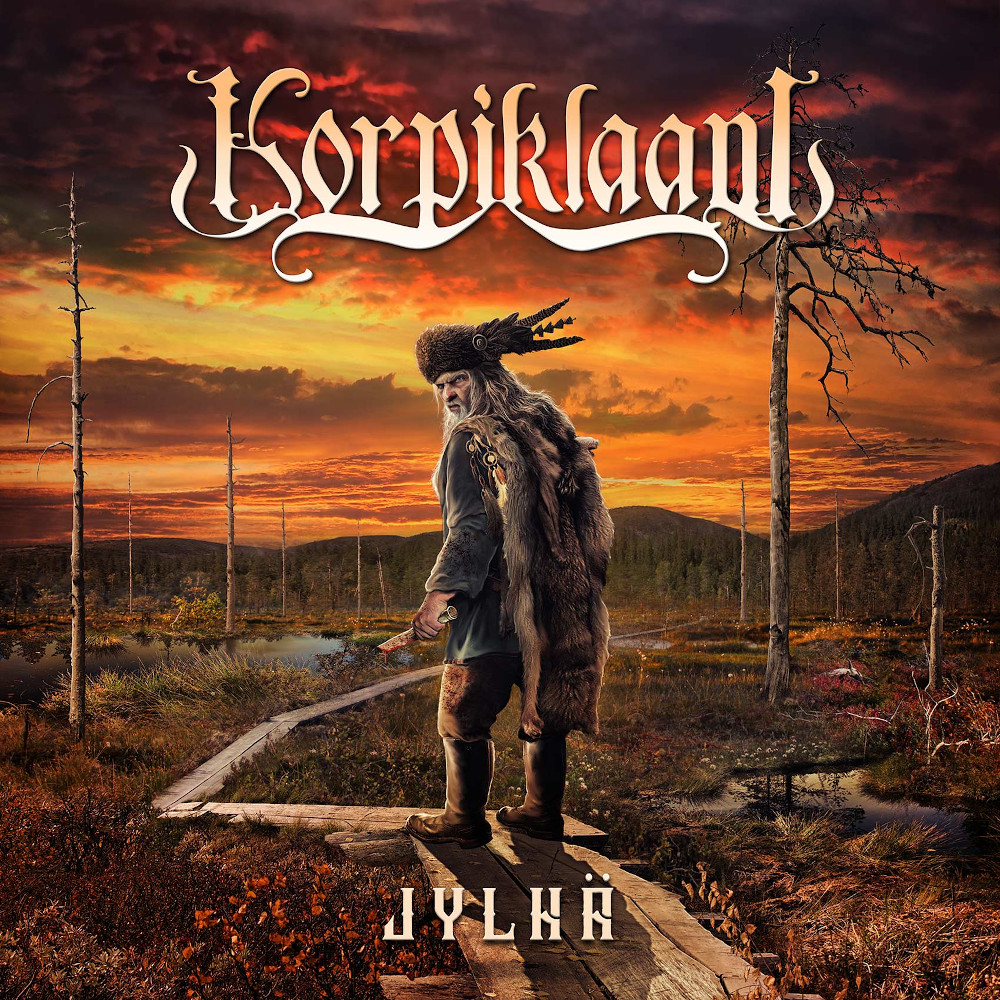 |
Country: Finland
Style: Folk Metal
Rating: 7/10
Release Date: 5 Feb 2021
Sites: Bandcamp | Facebook | Instagram | Metal Archives | Official Website | Twitter | Wikipedia | YouTube
The Clan of the Wilderness are back with their eleventh studio album and their publicity folk asked if I might like to take a listen and review it at Apocalypse Later. Is a bear Catholic? Does the Pope shit in the woods? Of course, I leapt at the chance and it wasn't long before I was leaping around my office in a lunatic dance with myself. Leväluhta is as immediate as any Korpi song I've heard, even if it's reminiscent of reggae until it speeds up.
This is a generous album, its lucky thirteen tracks running just over an hour, and there's a lot in it to unpack.
The band start out strong. New drummer Samuli Mikkonen ably demonstrates his skill on the opener, Verikoira, playing what I can only call lead drums until all five of his colleagues have joined in. Power chords turn into riffs and the violin and accordion tease their way into play until, a minute in, we're suddenly in the opener proper at full pace. It's a good one too, packed full of memorable riffs, catchy choruses and a neatly cheeky midsection that gets better every time I listen to it. This song somehow works both as a song and a showcase for everyone playing on it.
Niemi is even more playful, as Korpi fans expect, but these are more substantial songs than they may appear on the surface. I'm used to these speedy and urgent songs that prompt us to leap up and dance around until the demons jump out of us, but these feel a little deeper than usual. I also found myself sitting back and admiring the transitions and the tones. And all that goes double for Leväluhta and a seductive reggae groove that seems oddfor Korpi but utterly appropriate all at once.
The problem with a song like Leväluhta is that it's really hard to follow. Mylly is a decent song, a slow and moody piece compared to what's gone before but a good one. However, it inevitably fades in this slot on the album. Tuuleton at least has a different approach to grab our attention back, starting out almost like a French chanson and growing into grinding epic folk. Mylly kind of gets lost in the wash and a few others do that here too. Such is often the curse of generous albums.
However, the benefit of generous albums is that we can deep dive into songs like these at our leisure, not just during a listen through the whole album but by focusing in on individual tracks. The livelier songs leap out, of course, like Verikoira, Leväluhta and Pohja, and more unusual songs like Pidot and Leväluhta and too, but the deepest ones assert themselves as we focus in. I particularly like Sanaton maa, a song that snuck by me on my first time through but gradually made itself more and more obvious.
It's a great example of how well the folk instruments have been infused into the Korpi sound. They've always had violins and accordions but I don't remember them being so well integrated. On the early classics, like Spirit of the Forest and Tales Along This Road, they were there but they often played the role of exotic texture or solo instrument. Here, they're as integral as the lead guitar, and that remains consistent throughout. They particularly shine on Sanaton maa, the violin of Tuomas Rounakari the lead instrument and the accordion of Sami Perttula adding much.
This is a solid album. I'd say that it's their best release in a while, but I suddenly realise that I haven't heard the last couple of albums, so I'll say that it's the best I've heard in a while. It's inconsistent but that may come with the generous length; a few lesser songs could have been cropped to tighten it up. However, it does everything I want a Korpi album to do but it does it a little deeper than I remember. I look forward to exploring it more.


No comments:
Post a Comment